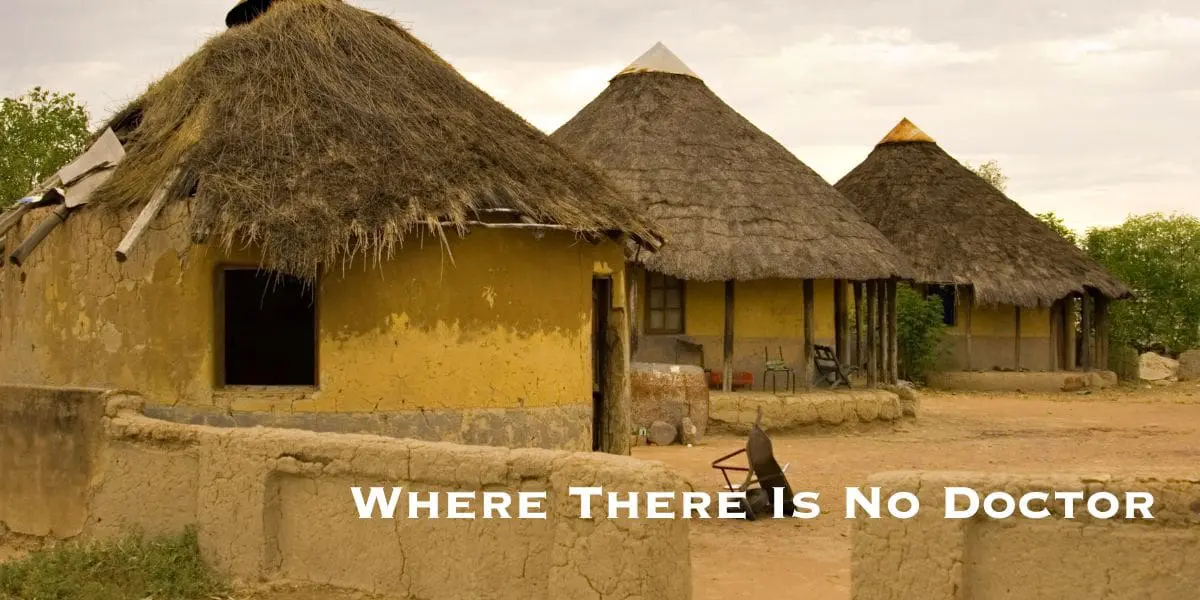Download your free copy here.
“Where There Is No Doctor” is a comprehensive health care handbook written by David Werner, Carol Thuman, and Jane Maxwell. Originally published in 1977, this book has been revised multiple times to provide up-to-date information based on the latest scientific knowledge. It aims to empower individuals and communities living in remote areas with limited access to medical facilities by providing them with essential knowledge and skills to take charge of their own health care.
Content and Organization: The book is divided into several chapters, each addressing different aspects of health care. It begins with an introduction that emphasizes the importance of health care as a right and responsibility for all individuals. The authors advocate for informed self-care and believe that ordinary people, armed with clear and simple information, can prevent and treat most common health problems in their own homes.
The subsequent chapters cover a wide range of topics, including home remedies, popular beliefs, different types of illnesses, how to examine a sick person, taking care of a sick person, healing without medicines, the right and wrong use of modern medicines, antibiotics, and how to measure and give medicine. Each chapter provides practical advice, guidelines, and step-by-step instructions, making it easy for readers to understand and apply the information.
The book also emphasizes the importance of community involvement and encourages group discussions and learning together. It provides guidance on how to facilitate group discussions, ask thought-provoking questions, and engage community members in finding solutions to health-related issues.
Accessibility and Language: “Where There Is No Doctor” has been written in fairly basic English, making it accessible to individuals with limited formal education or whose first language is not English. The authors have taken care to use simple language without being condescending, ensuring that readers can easily understand the content. Difficult words are explained in a vocabulary section at the end of the book, further enhancing comprehension.
Global Impact and Translation: The impact of “Where There Is No Doctor” extends far beyond its original publication. The book has been translated into more than 80 languages and is used by village health workers in over 100 countries. Its success lies in its adaptability, as it can be tailored to specific regions and communities by individuals familiar with local health needs, customs, and languages.
Luminary Global Tactical Trauma Kit Fully Stocked First Aid Kit Backpack EMS/EMT First Responder Medical Bug Out Bag for Preppers Professionals and Outdoorsman (Olive Drab)
Relevance and Updates: The book acknowledges the evolving nature of medical knowledge and the need for regular updates. The revised edition includes new information based on the latest scientific research, ensuring that readers have access to the most current and accurate health care advice. The additional information section at the end of the book covers health problems of growing concern, such as HIV and AIDS, complications from abortion, and drug addiction.
Conclusion: “Where There Is No Doctor” is an invaluable resource for individuals and communities living in areas with limited access to medical facilities. It empowers readers to take control of their own health care, providing them with the knowledge and skills to prevent and treat common health problems. The book’s emphasis on community involvement, group discussions, and learning together fosters a sense of empowerment and collective responsibility for health care. With its wide availability in multiple languages, this book has made a significant impact on global health care, enabling individuals to lead healthier lives and communities to develop a more sensible approach to caring for one another.
































